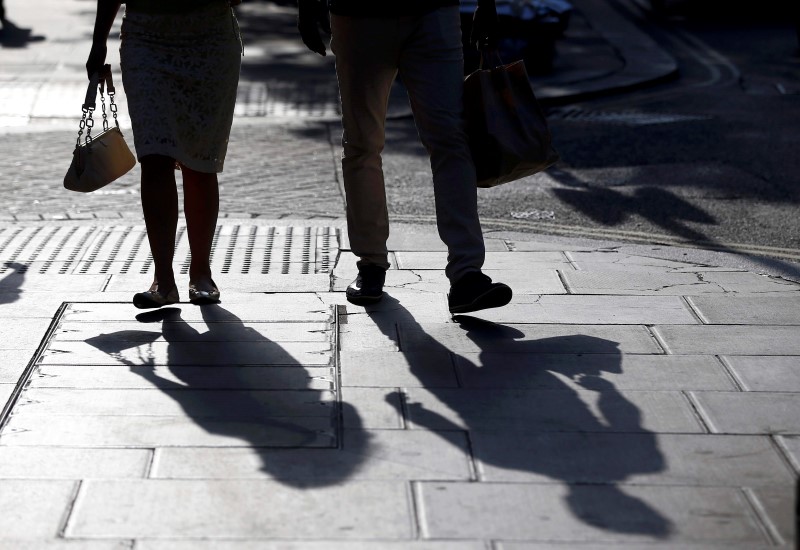By Ana Nicolaci da Costa and William Schomberg
LONDON (Reuters) - The prices of goods leaving British factories rose at their fastest pace in over two years as a fall in sterling after Britain's vote to leave the European Union pushed up import prices, creating inflation pressure ahead.
Producer prices were up by 0.3 percent in July from a year earlier, the Office for National Statistics said on Tuesday, stronger than a median forecast in a Reuters poll for no change in the month following the referendum.
Consumer prices were up by 0.6 percent in July compared with a year earlier, up from 0.5 percent in June and their biggest increase since the end of 2014. Economists in a Reuters poll had expected a 0.5 percent rise in July.
"There was no obvious impact on today's consumer prices figures following the EU referendum results, though the Producer Prices Index suggests the fall in the exchange rate is beginning to push up import prices faced by manufacturers," said Mike Prestwood, head of prices at the ONS.
Britain voted on June 23 to leave the EU - a decision that could tip the economy into recession and has also led to a sharp fall in sterling, driving up import and input costs.
Input prices paid by manufacturers saw their biggest annual rise in three years in the month following the vote. They were up 4.3 percent in July, well above the 2 percent rise forecast in a Reuters poll, after a 0.5 percent fall in June.
Import prices rose at the fastest pace since late 2011.
BANK OF ENGLAND BALANCING ACT
The data underscores the challenge the Bank of England will face in coming months as it tries to stimulate growth at a time when price pressures are rising due to the fall in sterling.
The BoE this month cut interest rates for the first time since 2009, even as it raised its inflation forecasts for 2018 and 2019 further above its 2 percent target.
Ruth Gregory, an economist at Capital Economics, said she expected inflation to hit nearly 3 percent by the end of next year, but previous plunges in the value of sterling suggested inflation expectations would remain under control.
"As such, this is unlikely to prevent the (Bank of England) from pressing ahead with further monetary policy loosening," she said.
The BoE said in August it could cut interest rates closer to zero if its predictions for slower growth materialise.
Tuesday's release was one of the first pieces of official data covering the period following the EU referendum.
British inflation has been below the Bank's target for two-and-a-half years. Last year it was zero, the lowest since comparable records began in 1950.
An ONS measure of core consumer prices -- which strips out changes in the price of energy, food, alcohol and tobacco -- was 1.3 percent higher in July than a year earlier, in line with forecasts in a Reuters poll.
The ONS also released figures for house prices in June, which showed an 8.7 percent annual rise across Britain as a whole compared with 8.5 percent in May.

The house price data predominantly came from the period prior to the referendum, the ONS said. Prices in London alone jumped 12.6 percent in annual terms, the slowest rise in the capital since December.